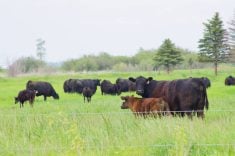HIGH RIVER, Alta. – Beef producers must organize as a unified voice if
they hope to survive an increasing number of threats hurled at their
industry, some cattle producers say.
The beef industry does not have a unified voice, which makes it
difficult to convince government that support is needed, said Kee Jim
of Okotoks, Alta., during a cattle producers meeting in High River last
week.
“Politicians are not taking us seriously because we can’t seriously
Read Also

House ag committee to undertake several studies
The House of Commons standing agriculture committee has set its agenda for the coming months. Members began the fall sitting with a two-hour update on international trade
organize,” he said during a debate over changes to the Alberta Cattle
Commission.
A recent criticism of the commission is that it consists largely of
cow-calf producers who may not fully appreciate the needs of the
feeding or marketing sectors.
“It is really detrimental to the long- term success of the industry in
this province if we are only concerned about one niche,” Jim said.
A newly formed group called the Alberta Beef Council wants a provincial
plebiscite to determine whether a revised beef organization is needed.
“It is prudent to examine whether the current structure is the most
effective in representing the industry,” said council chair Jeff
Warrack.
Opinions at the meeting were evenly split about the merits of a new
organization, which would include representatives from all sectors
including processors, order buyers and auction markets.
Chuck Groeneveld of Okotoks, a longtime ACC delegate, reminded the
group that anyone can run as a delegate.
“We’re open. It is not a closed shop. As long as you sold one animal,
you can run.”
Dave Plett of High River said each sector has specialized concerns that
may not be fully appreciated by other areas. A high level of expertise
from each sector is needed to address concerns for a stronger
organization.
“Sometimes we forget we are all on the same end of the rope, trying to
pull the industry forward,” Plett said.
Erik Butters of Cochrane argued the cattle commission has had strong
representatives from other sectors in the past.
“They didn’t even have a majority. They just had to make a strong
argument,” he said. “They turned up and got elected so their concerns
could be heard.”
Granum rancher Norm Ward said many sectors have no power to move
concerns forward under the current arrangement.
He sits on the beef council and is a past-president of the Western
Stock Growers Association. He was also an ACC delegate for seven years.
The beef council proposal involves the formation of five councils that
each represent a group or sector of the industry. Each sector would
provide representatives on a board of directors.
The plan calls for nine cow-calf producers on the board and other
sectors would have five or fewer representatives.
“Let’s get together and quit the fighting and get on with it,” said
Ward.
ACC delegate Michael Bird said revamping the commission may require
legislative change but he agreed better communication is needed among
groups.
The cattle commission has argued it needs secure funding for its
programs and has defended its mandatory checkoff in court. The new plan
proposes a refundable levy on each animal sold.
“Our board has been adamant that we are not in agreement with a
refundable checkoff,” said Bird.
The checkoff funds promotion, marketing and lobby efforts for the
Alberta industry. Last year the commission had a $10 million budget but
has reduced its 2003 budget to $8 million because fewer marketings from
a smaller provincial cattle herd are anticipated.

















